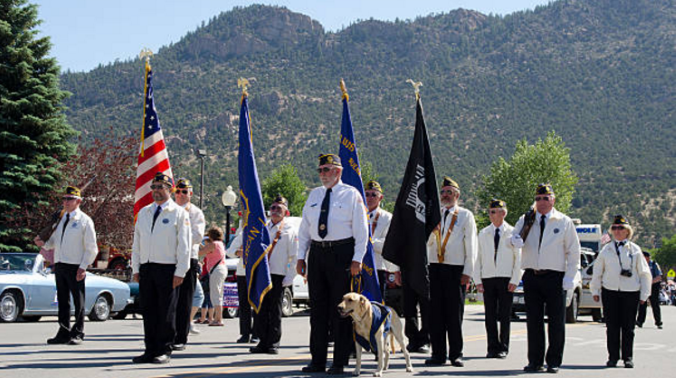Despite the war that Attorney General Jeff Sessions is threatening to wage on marijuana, the medical cannabis industry has a very powerful ally in their corner. The American Legion, the nation’s largest wartime veterans service organization with 2.4 million members, wrote a letter to the Trump administration last month requesting time to discuss critical veteran’s issues including post-traumatic stress disorder, opiate-addiction, suicide, and furthering research on cannabinoids.
The American Legion officials are quick to point out that they are not seeking legalization of cannabis at this time. However, they do want to see the administration reclassify marijuana to allow more research to take place. In an email to The Cannabist, a division of the Denver Post, Louis Celli, Director of The American Legion’s National Veterans Affairs and Rehabilitation division, called the current federal stance on marijuana “the catch-22 policy,” stating:
“On one hand, the government claims that there is no federally approved scientific evidence to support cannabis being used in a medical environment, so they refuse to consider reclassifying it. And on the other hand, they refuse to permit scientific research because it’s a Schedule I substance.”
Marijuana is currently classified as a Schedule I Drug under the Controlled Substances Act, lumped in with LSD and heroin as a drug with “no accepted medical use.” However, 29 states in the US have passed medical marijuana laws, and 22 of those states recognize PTSD as a qualifying condition for cannabis.
This isn’t The American Legion’s first step towards a more practical approach to marijuana. Last August, the group urged the DEA to reschedule cannabis after passing a resolution to do so during their annual convention. Then again in December of 2016, officials from The American Legion met with Donald Trump’s transition team to discuss the organization’s priorities, including changing the drug policy to move marijuana from the current Schedule I status to Schedule III to allow for more thorough research.
According to the Veterans Affairs’ website, the number of veterans with PTSD varies:
- Operations Iraqi Freedom (OIF) and Enduring Freedom (OEF): Between 11-20% have PTSD.
- Gulf War (Desert Storm): About 12% have PTSD.
- Vietnam War: It is estimated that about 30% of Vietnam Veterans have had PTSD in their lifetime.
Another study published in 2016 by the VA, showed veteran suicide was up 32% since the last study in 2001, and nearly 20 United States veterans are committing suicide each day. With statistics like these, it’s clear why the American Legion wants the Trump administration to take action that will ensure veterans have legal access to all available tools to reduce the number of veteran lives lost and potentially improve their overall quality of life.

